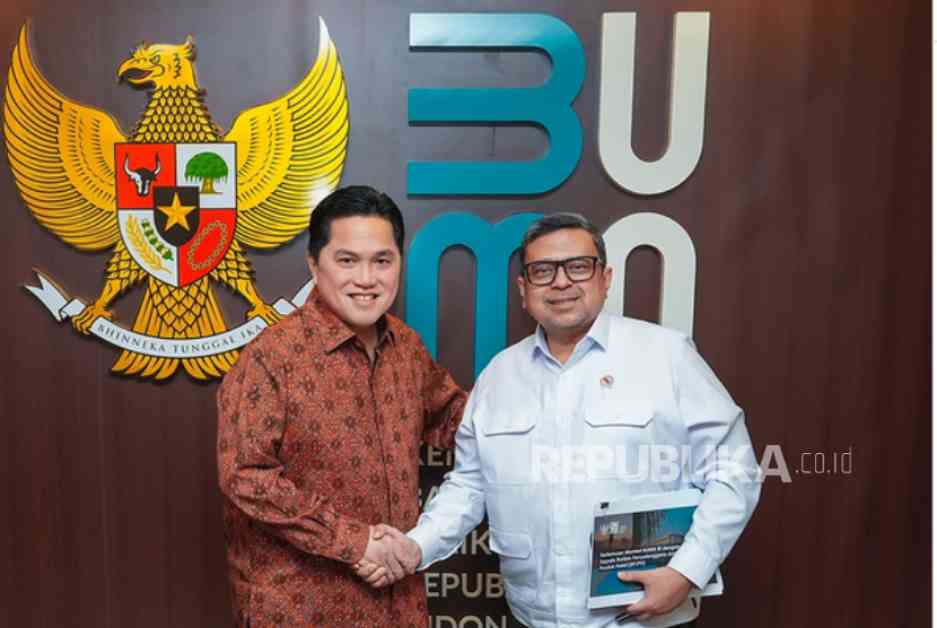Minister of State-Owned Enterprises (BUMN) Erick Thohir met with Head of the Halal Product Assurance Organizing Agency (BPJPH) Ahmad Haikal Hassan on Wednesday, February 5, 2025. During the meeting, Erick emphasized BUMN’s support for the president’s goal of increasing job opportunities by strengthening the halal ecosystem in Indonesia.
Erick expressed, “We at BUMN support the President’s vision to enhance job creation, promote entrepreneurship, and develop the creative industry through bolstering Indonesia’s Halal Ecosystem.” This commitment underscores Indonesia’s significant potential in the global halal industry. With halal certification, products gain increased trustworthiness, expand export opportunities, and provide assurance to consumers.
Erick highlighted that BUMN plays an active role in expediting halal certification, offering support ranging from assisting MSMEs through PMN Account Officers to providing funding from Himbara. This collaboration is expected to accelerate the growth of the national halal industry and enhance Indonesia’s product competitiveness in the global market.
In another setting, Head of BPJPH Ahmad Haikal Hasan mentioned that the implementation of the Halal Product Assurance (JPH) by the government has positively impacted job creation in Indonesia, particularly in the last 100 days.
Expert Insights on Halal Ecosystem Development
To shed light on the significance of developing the halal ecosystem for job growth, Dr. Maya, a renowned economist, shared her expertise. Dr. Maya emphasized that a robust halal ecosystem not only boosts employment opportunities but also fosters economic growth by tapping into the trillion-dollar global halal market. She added that Indonesia’s strategic position as the largest Muslim-majority country offers a unique advantage in capitalizing on the halal industry’s vast potential.
Moreover, Dr. Maya highlighted that aligning Indonesia’s halal standards with international benchmarks is crucial for enhancing the country’s export competitiveness and attracting foreign investment. By investing in halal certification infrastructure, such as training programs and technological advancements, Indonesia can position itself as a global hub for halal products, creating a ripple effect of job creation and economic prosperity.
Local Business Perspectives on Halal Certification
In a conversation with local business owners, the impact of halal certification on their enterprises became evident. Rahma, a small-scale cosmetics producer, shared how obtaining halal certification not only expanded her market reach but also instilled trust among consumers, ultimately leading to increased sales and business growth. Similarly, Ali, a food entrepreneur, emphasized how halal certification opened doors to international markets, enabling his products to reach a broader audience and drive export revenues.
These testimonies underscore the transformative power of halal certification in driving business success and contributing to the overall economic landscape. By prioritizing halal compliance and investing in certification processes, businesses can unlock new growth opportunities, diversify revenue streams, and contribute to job creation within their communities.
In conclusion, the collaboration between BUMN and BPJPH signifies a pivotal step towards harnessing the full potential of Indonesia’s halal ecosystem for job creation and economic development. Through strategic partnerships, regulatory advancements, and industry support, Indonesia is poised to emerge as a global leader in the halal market, driving sustainable growth and prosperity for its citizens.














